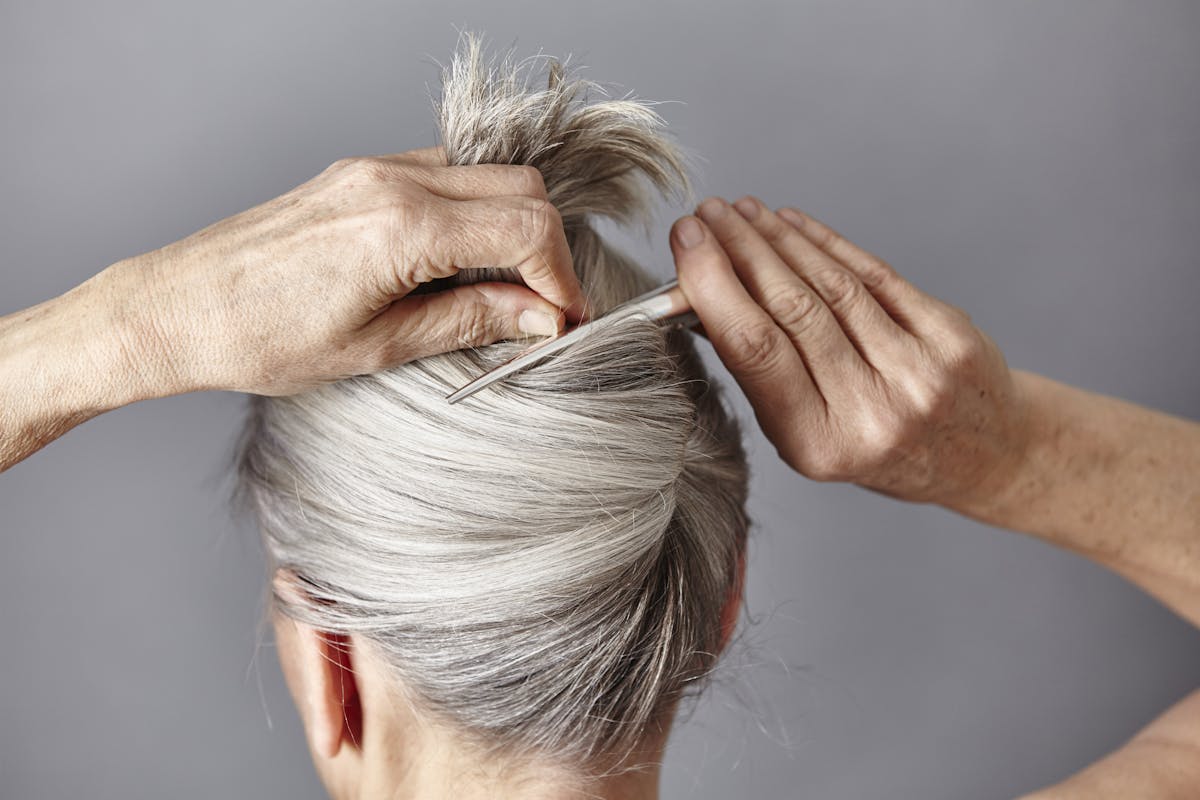With menopause comes many changes, but the last one that many women expect is hair thinning. Not everyone who goes through menopause experiences hair thinning, but it can be an effect of all those hormonal changes going on in your body. In fact, it’s more common than most people think.
3 Ways To Combat Hair Thinning From Menopause
7 Min Read

Get hair, health, and science news delivered right to your inbox.

Medically Reviewed by
DR. MELISSA ANZELONE, N NDAccording to research from Harvard Medical School, as many as two-thirds of women experience hair thinning or bald spots after menopause. Of course, even though menopause-induced hair thinning is common, it doesn’t make it any easier to deal with if it happens. Hair, after all, is what makes a lot of women feel young, feminine, and attractive. Take that away, and it can lead to a huge blow in confidence and self-esteem.
“For women in menopause, there’s a drastic change of hormones — a drop in estrogen and progesterone, which puts them in a place of relative testosterone dominance,” says Nutrafol naturopathic doctor Tess Marshall. “This is really bad for your hair, because more DHT [a testosterone-derived sex hormone] causes female pattern hair loss. You may notice a widening of the hair part or a receding hairline, especially in the crown, and that pattern is almost always the fault of DHT.”
With menopause also comes an increase in levels of cortisol, the body’s natural stress hormone; a decrease in collagen, the protein that helps keep skin youthful and healthy; and changes to metabolism, leading to less effective digestion. All of these are no good for hair growth, but there are ways to get ahead of it.
Here are three ways to battle the changes in hair health that can occur during or after menopause:
1. Manage stress levels
Stress is a major culprit when it comes to hair thinning, so keeping stress levels low is key; however, this isn’t always easy during menopause. “Stress hormone levels rise during menopause, which shortens the hair’s growth cycle,” says Marshall. To combat stress, make sure you’re getting in some regular exercise that you enjoy, whether that’s swimming, yoga, or simply taking a walk. Additionally, carve out time to care for your mental health by meditating, reading a book, seeing friends and family, or going to therapy.
You can also take supplements, like Nutrafol’s Stress Adaptogen, that contain adaptogenic plants that help improve the body’s stress response. Studies show these adaptogens can also help improve sleep quality, which is important for managing stress hormone levels.
2. Support absorption of nutrients
Metabolism slows down considerably during menopause, which is a problem for digestion. The body’s ability to effectively absorb nutrients is crucial for hair growth as well as overall health. “As women age, their ability to absorb nutrients decreases, so they may have less nutrients to make and support hair growth,” Marshall says. To help support better absorption of nutrients, Marshall suggests taking a blend of vitamins and amino acids.
Antioxidant stores in the body also decline after menopause, making older women more susceptible to environmental toxins that can cause oxidative stress on the hair follicle. Marshall notes that curcumin, astaxanthin, and vitamin E all combat this effect.
3. Balance hormone changes
Drops in estrogen and progesterone can mean danger for hair health. Marshall recommends taking supplements that help balance hormone changes in menopause. “They can help the menopause transition to happen more seamlessly, so that the changes in hair won’t be so prominent,” she says. Marshall pointed to Nutrafol Women’s Balance, which is specially formulated for women experiencing menopause. Women’s Balance contains ingredients like saw palmetto to target DHT and maca root to help support female hormones during menopause. “The supplement also comes with other side benefits like possibly reducing hot flashes, improving sleep, and promoting healthy aging, which are things that women are interested in after menopause,” she says.
When it comes to facing changes in your hair, Marshall says there’s definitely some factors that we can’t control. (“We can’t deny that we’re going to age,” she notes.) But what women can do is manage their stress, support digestion, and take supplements that help balance hormone changes in menopause.